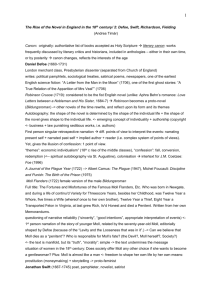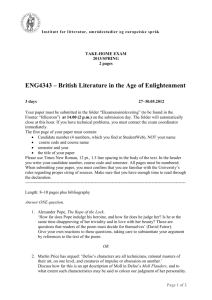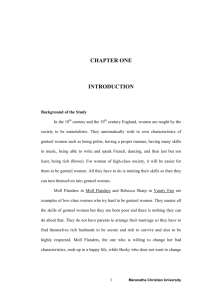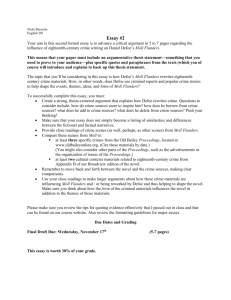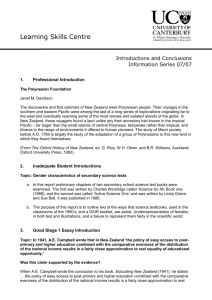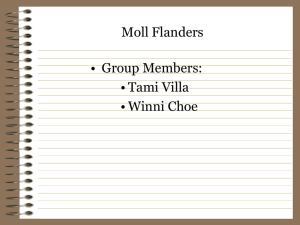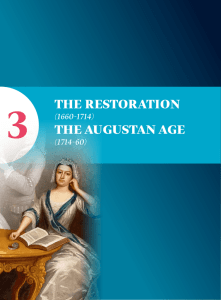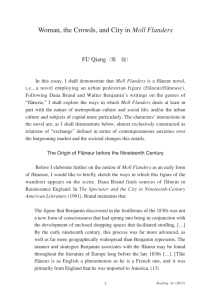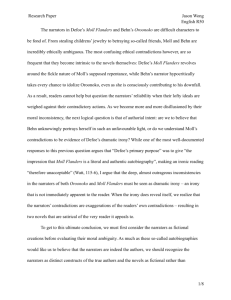Moll Flanders (disanbiguation)
advertisement
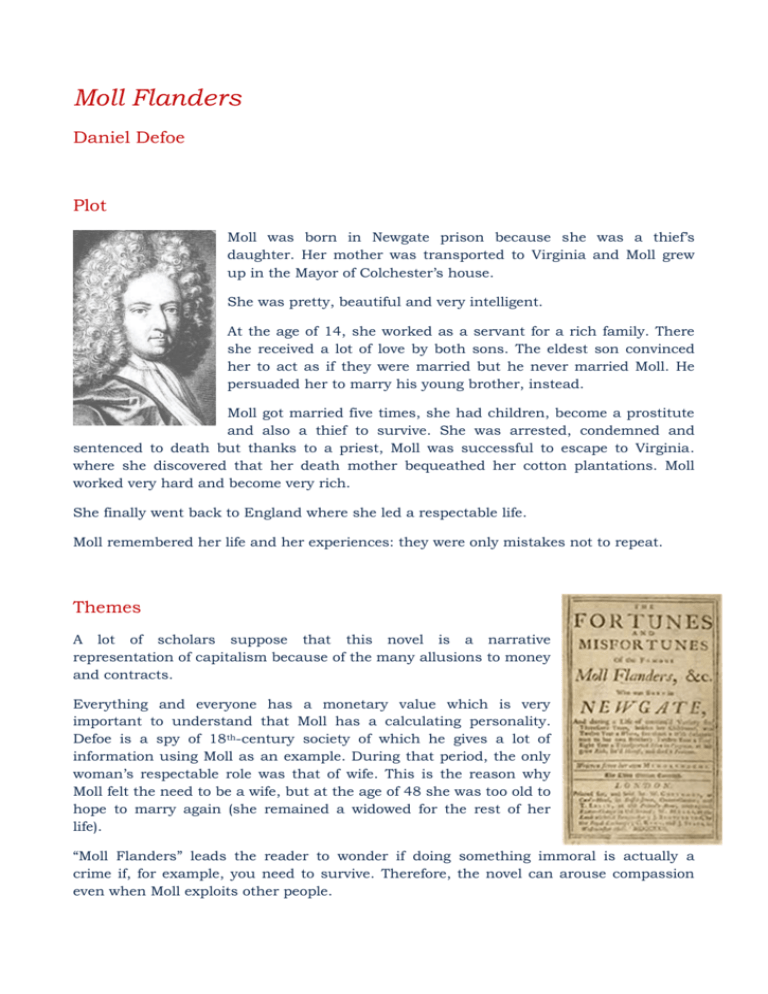
Moll Flanders Daniel Defoe Plot Moll was born in Newgate prison because she was a thief’s daughter. Her mother was transported to Virginia and Moll grew up in the Mayor of Colchester’s house. She was pretty, beautiful and very intelligent. At the age of 14, she worked as a servant for a rich family. There she received a lot of love by both sons. The eldest son convinced her to act as if they were married but he never married Moll. He persuaded her to marry his young brother, instead. Moll got married five times, she had children, become a prostitute and also a thief to survive. She was arrested, condemned and sentenced to death but thanks to a priest, Moll was successful to escape to Virginia. where she discovered that her death mother bequeathed her cotton plantations. Moll worked very hard and become very rich. She finally went back to England where she led a respectable life. Moll remembered her life and her experiences: they were only mistakes not to repeat. Themes A lot of scholars suppose that this novel is a narrative representation of capitalism because of the many allusions to money and contracts. Everything and everyone has a monetary value which is very important to understand that Moll has a calculating personality. Defoe is a spy of 18th-century society of which he gives a lot of information using Moll as an example. During that period, the only woman’s respectable role was that of wife. This is the reason why Moll felt the need to be a wife, but at the age of 48 she was too old to hope to marry again (she remained a widowed for the rest of her life). “Moll Flanders” leads the reader to wonder if doing something immoral is actually a crime if, for example, you need to survive. Therefore, the novel can arouse compassion even when Moll exploits other people. Meaning of the novel and critics “Moll Flanders” is a picaresque novel but also a moralistic one. It is a picaresque novel because Moll was a poor girl who lives in a rich world and reveals the vanity and the smallness of the rich class. It is a moralistic novel because we can read it in two ways: 1. It is the story of a poor girl who wants to become rich but to do so she becomes a thief, a prostitute, she abandons her children, and she gets married five times. 2. Even if she isn’t the stereotype of the good Christian, she can achieve peace only by confession, redemption and submission to God. Defoe was a puritan, therefore he believed in hard work, devotion, and Providence. From the point of view of historians, “Moll Flanders” gives a lot of information about life in the 18th-century, criminals and their punishments: there are a lot of detailed descriptions about life in “The Mint”, the best representation of Newgate prison. The novel also talks about immigrations to America considered as the best place for peace, tolerance, opportunities and religions. Although Defoe’s descriptions of America are insignificant compared to later ones (for example ”The travel” by Oliver Goldsmith), his novel has great value for the history of culture. Cinema and Theatre Among the adaptations of the novel are: -“The amorous adventures of Moll Flanders” (1965), starred by Kim Novak. -a musical adaptation by Hug Whitemore in 1975; -the adaptation of 1993 by Jasie Lawrence.
